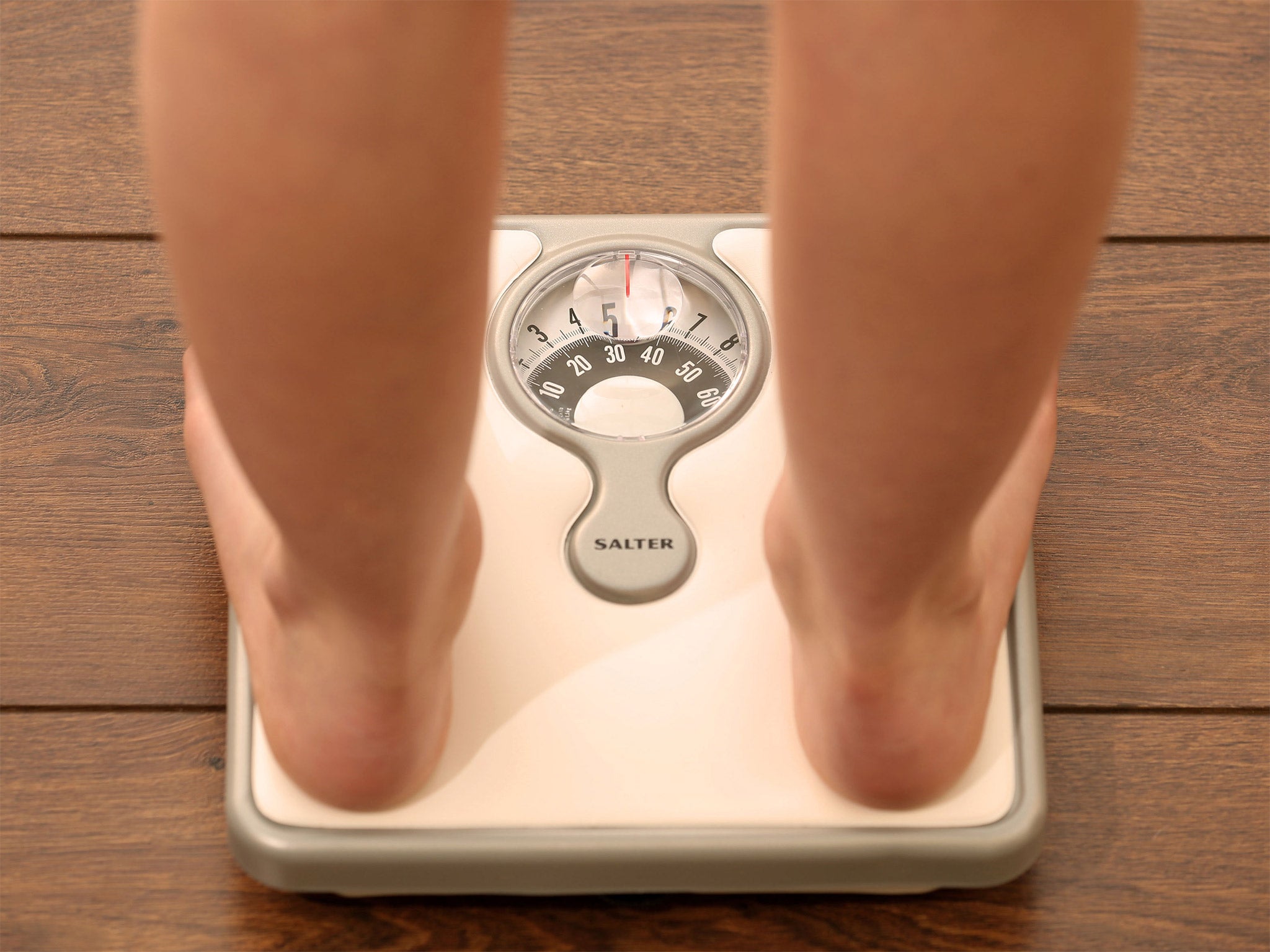When you're overweight, the world considers your body their business
We should treat the obese with a little compassion


January is upon us again, which lamentably entails the annual deluge of sanctimony on the subject of fatness.
If you Google my name, you’ll discover it is most often searched for alongside the words “weight loss”. I’ve spoken little on the subject, because my shrinking by two dress sizes in as many years wasn’t deliberate and I don’t consider my slightly smaller frame to be the most interesting thing about me (although the search-engine using public, apparently, disagree).
The truth is, the weight I am now is the one I have been most often throughout my adult life and representative of how my body naturally exists, in a healthy state. I have a BMI of 26.5, just edging me into the ‘overweight’ section of the dreaded chart, but not, my GP reassures me, to the detriment of my health. During my first forays into television, however, my BMI was more like 29 (I’m guessing, because I didn’t actually have time to weigh myself).
I had gained some weight during this period, quite simply, because I was establishing a business single handed. I overate, I now recognise, to reward myself for my hard work and I simply didn’t have the time to exercise in any meaningful way.
I can’t say being larger during this time ever bothered me unduly and I didn’t make a conscious effort to lose my excess bulk. In fact, I was barely aware of it. After a stint in hospital (for reasons completely unrelated to my size, I should add) I simply realised I needed a work/life balance. I slowed down. I took time to enjoy my food. I joined a gym and put aside time to exercise. I started listening to my body and its needs because I realised health can be a precarious thing. I began being kind to myself.
I tell you all of this because I’d be willing to put money on hundreds of people relating to it. I don’t imagine for one moment that my story is an unusual one. Being overweight has numerous causes - medical, biological and social - but for most there is some psychological or emotional element. Which is why, of course, the ‘eat less, move more’ mantra was destined to be effective only for those who found it easy to lose weight in the first place, thus rendering it rather futile.
Whilst I was lucky not to encounter any stigma or bullying as a larger lady, I was surprised at how many people considered my body their business. Assumptions were made, either that I was desperately unhappy with my shape and in need of suggestions on how to change it (I wasn’t) or that I was some kind of pro-obesity pin-up eager to have a chinwag on the subject of ‘real women’ or to slander the ‘skinny’ (again, I wasn’t). If I had been in a more vulnerable frame of mind, those assumptions might have had a lasting impact (and would probably have caused me to seek more solace in food).
All of which is why I’m delighted that Slimming World’s latest campaign #ShowHeart asks us to treat the subject of obesity with a little compassion.
New research conducted by the group has shown that the frequent humiliations faced by overweight people, such as being insulted by shop assistants, ignored by bar staff, ridiculed by the opposite sex and photographed in public on smartphones can cause depression, comfort eating and, ultimately, weight gain.
Our culture is incredibly aggressive towards the overweight, whether it’s constantly parading (highly questionable) figures about how much they cost the NHS in the press, or the continual stream of Victorian-freak-show-esque weight-loss television shows. I’ve always maintained that giving someone who overeats (and we must remember that this doesn’t apply to everyone who is overweight) a diet sheet is like giving a drug addict a piece of paper with ‘DON’T TAKE DRUGS’ written on it.
Add to this the increasingly acceptability of the Katie-Hopkins ‘tough love’ approach and the millions of pounds poured into festishizing food on the one hand whilst condemning gluttony on the other and is it any wonder more people in the UK are struggling with their weight than ever?
Let’s hope this latest campaign marks a year in which we develop more understanding of the issues, recognise that not everyone who is overweight is unhealthy, undesired or unfit to work and to reach out with compassion and empathy to those who are.
Join our commenting forum
Join thought-provoking conversations, follow other Independent readers and see their replies
Comments
Bookmark popover
Removed from bookmarks